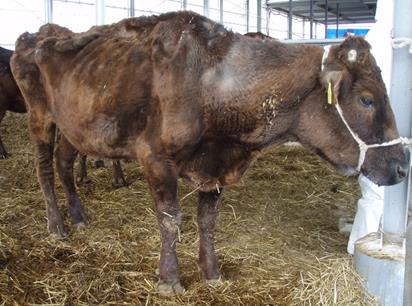Research team in Japan unravels immunopathogenesis of Johne’s disease, a chronic bovine disease that financially burdens cattle farmers globally.
April 2, 2018

Researchers with Hokkaido University, the National Agriculture & Food Research Organization and Tohoku University in Japan have demonstrated that a physiologically active substance called prostaglandin E2 (PGE2) impairs the immune response by upregulating the expression of an immuno-inhibitory molecule known as programmed death-ligand 1 (PD-L1) in cattle affected with Johne’s disease.
According to the announcement, the discovery is expected to help develop a method to control Johne’s disease, which is a frequently reported infectious bovine disease in cattle around the world.
Johne’s disease is a type of chronic enteritis caused by Mycobacterium avium subsp. paratuberculosis, leading to diarrhea and weight loss in cattle and occasionally death.
The researchers investigated the immunosuppressive effects of PGE2, which is known to appear in increased amounts in cattle with Johne’s disease, the announcement said. Their experiments showed that PGE2 has immunosuppressive effects on T-cells, a type of lymphocyte that plays an important role in the immune system. PGE2 also induced the upregulation of PD-L1 in immune cells isolated from cows.
The researchers further found that PGE2 and PD-L1 were co-expressed in intestinal lesions of the infected cattle.
In addition, they found that the inhibition of cyclooxygenase-2 (COX-2), which is involved in the synthesis of PGE2, boosted the immune response to the mycobacteria that causes Johne’s disease. When a COX-2 inhibitor is combined with anti-PD-L1 blocking antibodies, it further enhances the immune response to the mycobacteria, the researchers said.
“Our data suggest that immunosuppressive effects of PGE2 are strongly connected to the progression of Johne’s disease,” said associate professor Satoru Konnai with the research team at Hokkaido University. “We plan to conduct clinical trials to verify how the COX-2 inhibitor and anti-PD-L1 antibodies boost immune responses in cattle with Johne’s disease, in addition to examining the roles of PGE2 in cattle afflicted with other diseases.”
An article on the research appeared in the journal Infection & Immunity.
You May Also Like


.png?width=300&auto=webp&quality=80&disable=upscale)
